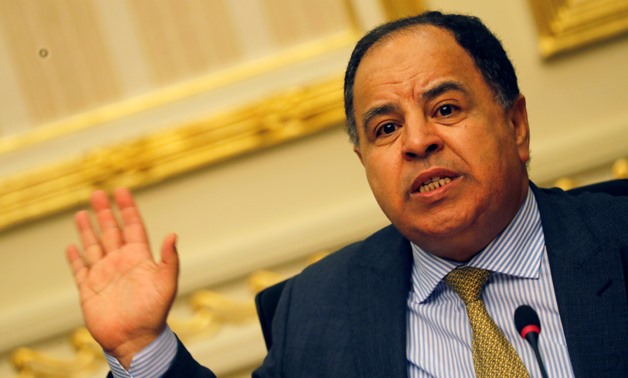
FILE PHOTO: Egypt's Finance Minister Mohamed Maait gestures during a news conference in Cairo, Egypt July 17, 2019. REUTERS/Amr Abdallah Dalsh/File Photo
CAIRO - 25 January 2022: Finance Minister Mohamed Maait confirmed that the value-added tax bill approved by the House of Representatives included the approval of several new exemptions related to vital sectors with the aim of supporting the industry and stimulating economic growth.
In an open dialogue on the new budget draft with the commercial and industrial community, the minister said that if we cannot reduce the commercial and industrial profits tax, it will not be increased.
“We aim to stimulate commercial and industrial activity, reduce burdens, and focus more on maximizing efforts to integrate the informal economy, by raising the efficiency of tax inventory, and accelerating the pace of work on projects to develop and automate the tax system, to be completed next June,” he continued.
He added that there is a draft law in the Ministry of Justice to amend some provisions of the comprehensive health insurance law, which includes deducting the symbiotic contribution from the tax base, and granting the Council of Ministers the right to exclude some revenues from being subject to the symbiotic contribution to the comprehensive health insurance.
The minister pledged to study the proposals put forward by the commercial and industrial community, during this meeting, in cooperation with the concerned authorities; In a manner that contributes to stimulating investment and advancing the industry and the export sector, including: studying the establishment of a specialized authority to stimulate exports, approving tax and non-tax incentives to encourage the private sector to establish and manage vocational training centers that support the industry, and tax and customs incentives to attract investments in the Upper Egypt.
This is in addition to studying the establishment of a unified entity serving the handicraft industry; In order to help in their development, and to create a combined certificate similar to a national number or a barcode for Egyptian products that guarantees the integration of its producers into the official economy.

Comments
Leave a Comment